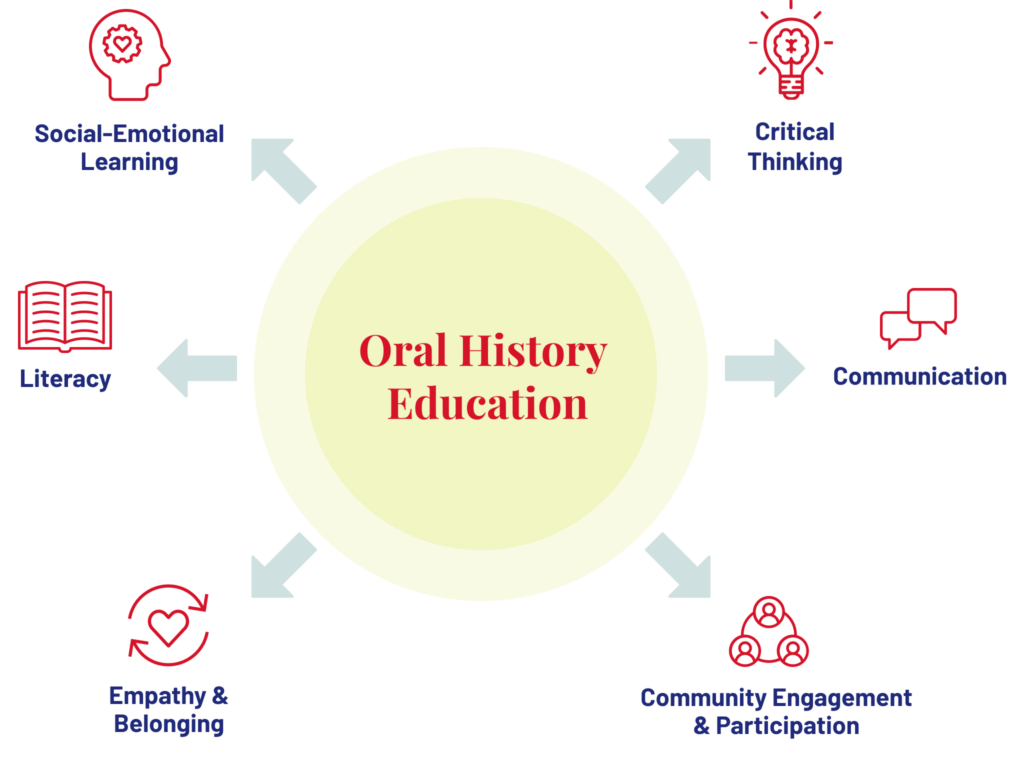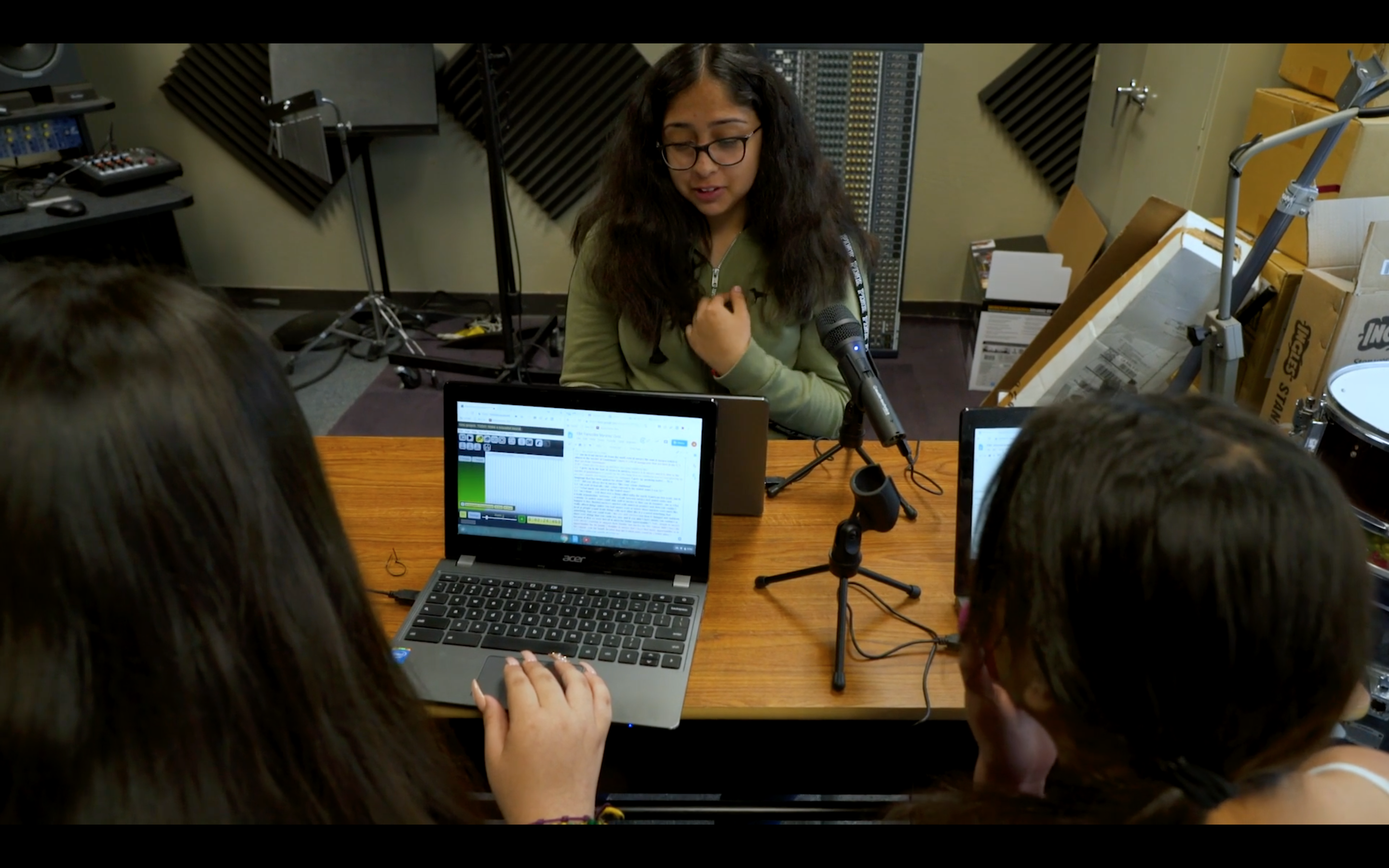What is the value of oral history education?
It’s a useful tool for teaching and learning and has many applications in educational settings. We have seen firsthand how oral history narratives and projects resonate with students, inspiring curiosity, empathy, action, and a deeper connection to their communities and the world around them. By engaging with Voice of Witness lesson plans and oral history projects, students discover their own voices and build stronger relationships with civic and human rights issues.

Oral history-based education fosters:
- Social-Emotional Learning
- Critical Thinking
- Literacy (Reading and Writing)
- Communication
- Empathy & Belonging
- Community Engagement & Participation
Reading oral history narratives provides students the unique opportunity to learn directly from individuals impacted by a particular issue—perspectives that are often left out of textbooks and mainstream curricula. Oral history inspires students to establish personal relationships and connections to the events and issues. It transcends the passive routine of remembering facts, figures, and dates and gives teachers and learners an engaging, tangible point of entry. To start, explore VOW’s human rights oral history book series and free lesson plans.
Students can also conduct their own oral history projects with peers, family, or community members. These projects foster vital student skills, including social-emotional learning, critical thinking, communication, and literacy. Conducting interviews and editing narratives can also cultivate empathy, challenge stereotyping and bias, and foster curiosity, belonging, and community engagement. Furthermore, storytelling has aspects that work for learners of many types, whether visual, auditory, or kinesthetic, as well as for English language learners. Check out our resource library for inspiration and guidance.
The need for oral history education has never been more urgent.
As schools face increased politicization and educational censorship, it is crucial to provide students with opportunities to engage with diverse perspectives in inclusive, culturally responsive learning environments.
Work with Us
We has extensive experience working with teachers, school districts, and education organizations to create curricula and activities that increase student engagement and learning in the classroom. We can support with curriculum design, oral history projects, programs for community engagement and participation, professional development and trainings, and more. Interested in collaborating? Reach out to learn more!
Teacher Testimonials
Students greatly benefitted from the thoughtful and engaging lessons created by Voice of Witness and their expertise in creating oral histories. I feel that the collaboration helped students to see their own work as part of a larger movement to tell the untold stories of people in our community, and not just an assignment in school.
Susan Warren, Teacher, Berkeley High School
My language learning students not only developed listening and speaking skills, but also made strong intergenerational bonds with community members through empathy and storytelling.
Esther Honda, Teacher, Willie Brown Middle School
VOW is one of the best organizations I have worked with as an educator. Each time I recommend their materials to a colleague, they also discover the value and importance of the work VOW does not only in the field of education, but really for our communities and the world.
Von Torres, Teacher, Clovis Community College


